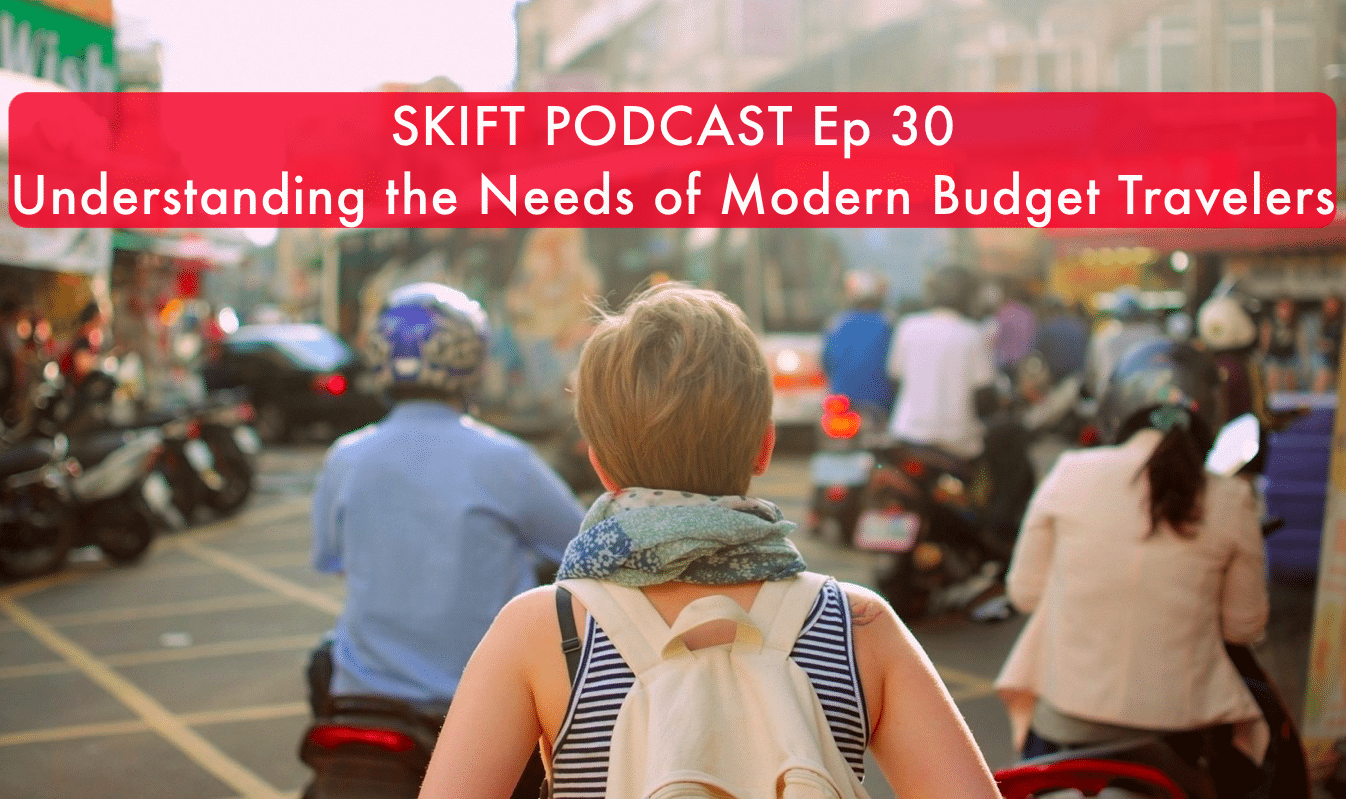Skift Take
Budget travel seems easier than ever with today's technology and the emergence of OTAs and home-sharing, but these trends have their own associated costs.
We looked at budget travel for a recent episode of the Skift Podcast, which explored the challenges of traveling cheaply in the midst of ever-changing technology and economic trends.
Our experts were Dan Saltzstein, a travel editor at the New York Times who edits the Frugal Traveler column, and Tom Meyers, founder and editor-in-chief of the booking and advice site EuroCheapo.com.
Here are five takeaways from the conversation:
Airlines and hotels are going basic.
Low-cost airlines like Spirit and Ryanair cater to increasing numbers of budget travelers by having them forfeit certain comforts and pay only for essentials.
Hotels are following the trend as well with no-frills accommodation.
“EasyJet for example has opened maybe 10 years ago already a chain of hotels called the EasyHotels,” says Meyers. “It has absolutely the cheapest rates… you get the essentials, air conditioning and a shower and the sink. The room is about the size of a closet in another hotel, if you want to use your TV, if you want to use the Wi-Fi, you have to pay extra for it.”
The sharing economy has totally transformed budget travel.
Airbnb offers an authentic experience in a non-touristy neighborhood that downtown hotels can’t provide, and Airbnb keeps prices low by skipping extras like a front desk and a concierge.
“I was looking for an apartment in New York City,” says Saltzstein. “I just could not believe the prices I was seeing for hotels, people paying $1,200 a night, two night minimums… somebody is paying that and I can only assume it’s some combination of business travelers and high-end travelers.”
Online booking has also given home-shares an advantage over hotels, who pay sizable commissions to OTAs like Booking.com.
“Hotel rates are going up all over the world because of the technology,” says Meyers, “and yet on the unregulated hotel sector… it’s technology that’s driving down hotel rates.”
Budget travel presents some ethical issues.
Traveling cheaply sometimes means sacrificing personal safety, as in the case of the New York Times’ Frugal Traveler, Lucas Peterson, riding a Megabus that caught on fire.
“Lucas was lucky; the bus caught on fire but everybody was off the bus,” says Saltzstein. “Then I think the other issue with that was people getting compensated for their lost property, and most of the people they talked to, it’s just there is no regulation.”
Sometimes the cheap room costs less because that establishment isn’t paying taxes, or isn’t paying their staff a living wage, or isn’t ADA compliant, for example.
“In the end I think it’s interesting that this sharing economy has this sort of narrative built around it that’s warm and fuzzy, and a lot of that is because there are some really smart well-paid marketing people at these companies,” explains Meyers.
Then there’s the question of whether it’s opportunistic to visit a place that’s recently been devastated by terrorism or natural disaster, and therefore offering artificially low prices.
“One person’s opportunism is another person’s opportunity,” says Saltzstein. “They were willing to cut rates to get people to come back. I have no problem with people sort of looking at situations like that and saying like now is the time.”
Do your research and read the fine print.
Despite the ease and speed of modern technology, budget travelers still have to do their homework, and lots of it.
“I think that the most important skill for the frugal traveler, for a budget-conscious traveler is not just sort of knowing about the tools, it’s knowing how to use them. All the stuff we’ve been talking about are great examples: Airbnb, TripAdvisor, Kayak, any site where you have the ability to sort,” explains Saltzstein.
Even figuring out how to use your mobile device abroad is part of the budget traveler’s pre-trip research.
“That’s actually our number one article on EuroCheapo, which I wrote like a year ago, how to buy a SIM card,” says Meyers. “Then our number two most popular is how to set up your iPhone… that’s like what people are clearly looking for, what the hell to do with their phone.”
Travel agents and guidebooks aren’t obsolete yet.
Due to the aforementioned extensive research, some budget travelers are turning anew to travel agents and guidebooks to sift through the information for them.
“When does it actually make sense, to just be like, I give up and I’m just going to go to somebody who knows what they’re doing,” poses Saltzstein. “They know exactly where to go and exactly what a good rate is. That’s a lot of time and energy, it’s probably over most people’s heads and overwhelming.”
The Daily Newsletter
Our daily coverage of the global travel industry. Written by editors and analysts from across Skift’s brands.
Have a confidential tip for Skift? Get in touch
Tags: budget travel, skift podcast
